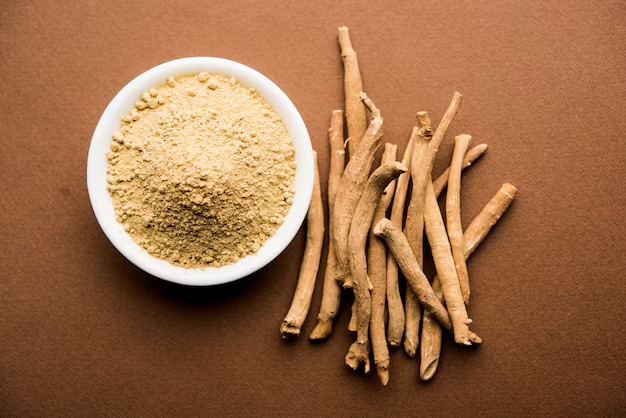Ashwagandha, a powerful herb rooted in Ayurvedic medicine, has been used for thousands of years for its potential to boost overall well-being. Now, modern science supports its reputation, showing ashwagandha may indeed help reduce anxiety. Here’s a deep dive into the mechanisms and research behind its stress-relieving effects.
What is Ashwagandha?
Ashwagandha (Withania somnifera), also known as “Indian ginseng” or “winter cherry,” is a small shrub native to India and parts of Asia. Its roots and berries have been traditionally used for their restorative properties, from reducing stress to improving strength and cognitive function.
How Ashwagandha Works to Reduce Anxiety
Studies show that ashwagandha can reduce anxiety through multiple mechanisms:
- Cortisol Reduction: Often referred to as the body’s stress hormone, cortisol can contribute to anxiety when elevated. Ashwagandha helps reduce cortisol levels, which may ease stress responses.
- Neurotransmitter Balance: This herb influences neurotransmitters like serotonin and GABA, which are crucial for maintaining mood stability and relaxation.
- Adaptogenic Properties: As an adaptogen, ashwagandha helps the body respond to various stressors, supporting immune balance and physical resilience during stressful periods.
Clinical Research and Evidence
Research indicates ashwagandha’s positive impact on stress and anxiety:
- Randomized Control Trials: In clinical trials, participants taking a high-concentration, full-spectrum ashwagandha extract showed a significant reduction in anxiety compared to a placebo group.
- 2021 Review: A review of seven studies found that ashwagandha reduced stress and anxiety, improved sleep quality, and lowered cortisol in participants.
- Dosage-Based Study: In a study with 60 participants taking 225-400 mg/day of ashwagandha, results showed improved stress, anxiety, and mood compared to baseline.
Dosage and Safety Considerations
Typical doses range from 250–600 mg daily, though individuals should always consult a healthcare provider for personalized guidance.
- Who Should Avoid It: Pregnant women and individuals with autoimmune diseases, ulcers, or specific cancers should avoid ashwagandha.
- Side Effects: Some may experience mild gastrointestinal issues; however, it’s generally well-tolerated.
Additional Benefits of Ashwagandha
Beyond anxiety relief, ashwagandha offers various potential health benefits:
- Physical Performance: It has been shown to enhance muscle strength and endurance, making it popular among athletes.
- Heart Health: Ashwagandha may help lower blood pressure and cholesterol levels, supporting cardiovascular health.
- Cognitive Support: Studies suggest it can improve memory and cognitive function, potentially benefiting those with cognitive impairments.
Conclusion
Scientific evidence supports ashwagandha’s effectiveness in reducing anxiety, thanks to its cortisol-lowering, neurotransmitter-modulating, and adaptogenic effects. As part of a comprehensive wellness approach, ashwagandha may offer a natural, effective way to manage stress.
Explore Top Ashwagandha Supplements
If you’re ready to try ashwagandha for anxiety, we’ve curated a list of the best supplements based on potency, purity, and customer reviews. Check out our top picks to find the right fit for your wellness journey.

This is very fascinating, You’re an excessively skilled blogger. I’ve joined your feed and look forward to in the hunt for extra of your magnificent post. Also, I have shared your website in my social networks!